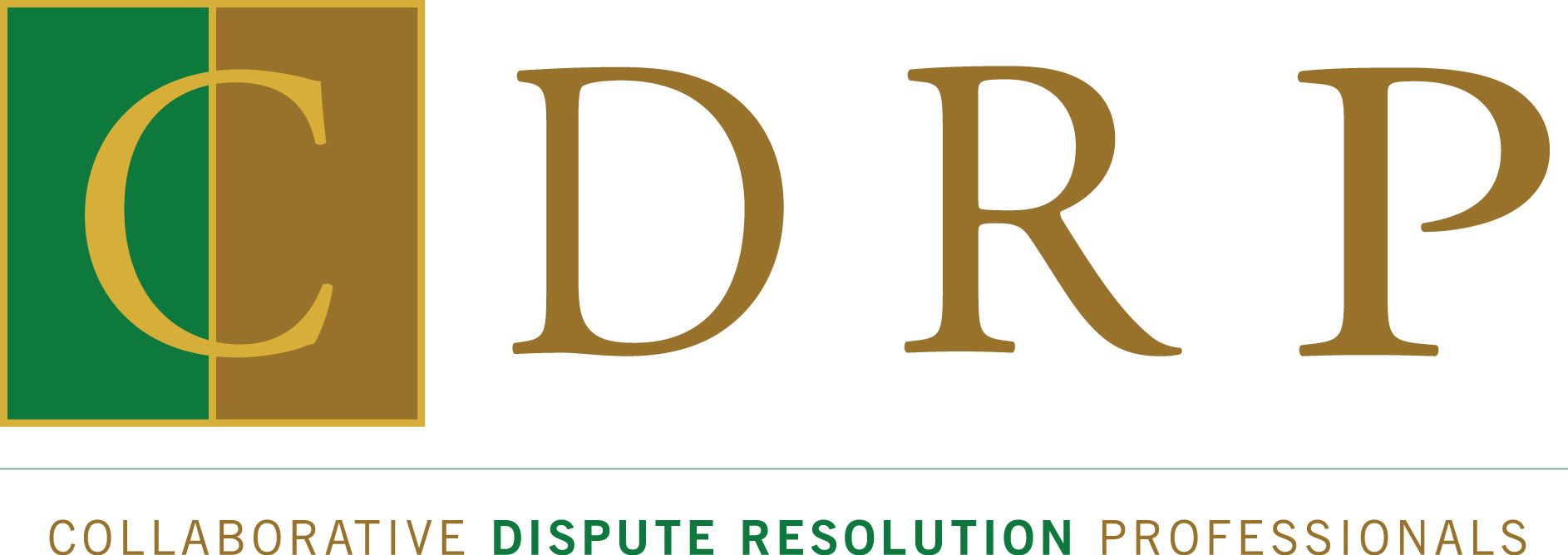CDRP is a non-profit group of collaboratively trained professionals promoting excellence in practice by providing its members with advanced training opportunities, and monthly educational meetings, all intended to provide the most skilled, educated collaborative professionals.
Attorneys
Attorneys on a collaborative team are bound by the same rules of ethics and professional conduct that apply to attorneys representing clients in court. At an initial client meeting your attorney will review the various dispute resolution processes available to you, including litigation, mediation and collaborative resolution to name a few, in order to assist you in selecting the process that best suits you and your situation. If you decide to pursue collaborative resolution, your attorney will assist you in identifying other team members and initiating the process.Once the collaborative process begins, the attorneys will provide advice on matters of law and ensure that all issues that need to be included in a comprehensive agreement, such as custody, support, property distribution, and other matters, are addressed.
As a part of the collaborative team, the attorneys help find mutually acceptable solutions by working with the parties to identify and explore their underlying interests and options. This is in contrast to an adversarial negotiation where the parties stake out positions rather than seeking mutually acceptable alternatives.
Mental Health
Going through a family transition is one of the most stressful times for parents and children. The collaborative law process supports families by utilizing an interdisciplinary team of professionals. Among these professionals are licensed mental health professionals trained in the collaborative process, called divorce coaches and child specialists. A divorce coach can help you set priorities, stay focused, and communicate effectively with your attorney and the other party. The divorce coach is available at any stage in the collaborative process to assist in optimizing the process. While not providing therapy, divorce coaches teach parties specific skills for managing emotions that may arise at the meetings, and help clients identify goals so that they can remain focused on key issues. In this way, coaches help prevent emotions such as anger, grief and anxiety from becoming obstacles to constructive communication so that meetings can progress effectively.
Mental health professionals may also serve as child specialists in the collaborative process. During separation and divorce, children may express differing and even contradictory feelings to each parent. As a result, the parents may have different beliefs regarding the children’s needs.
The child specialist meets with the children and brings their “voice” – their feelings, thoughts, and concerns – to the team. With this information, the parents can develop a parenting plan that best meets the children’s needs.
Financial Neutral
Financial neutrals can serve several functions in a collaborative divorce. The financial neutral may meet with the full team when the issues being addressed are financial, such as matters relating to support, valuation of pensions or businesses, tax issues (including how to structure property distributions to equalize or minimize tax consequences), or projections of future earnings. The financial neutral may also meet separately with the parties, if needed, to help organize financial statements and budgets, create lists of assets and debts showing balances and values, or prepare other information that may be used to generate and evaluate options. An experienced financial neutral can accomplish many functions that would otherwise fall to the attorneys, and in the collaborative process one jointly accepted expert is used rather than dueling experts. CDRP’s financial neutrals are either Certified Public Accountants or Certified Financial Planners who have been collaboratively trained.
Associated Professionals
Real Estate Agents and Mortgage Brokers can work with families to consider the feasibility of refinancing the marital home or purchasing a new home as part of a comprehensive agreement. They can provide clients with a market analysis to determine the current value of a home or property, determine whether a home can be refinanced to reduce the monthly mortgage, and they can assist with the sale of a home and the financing and purchasing of a new home.


